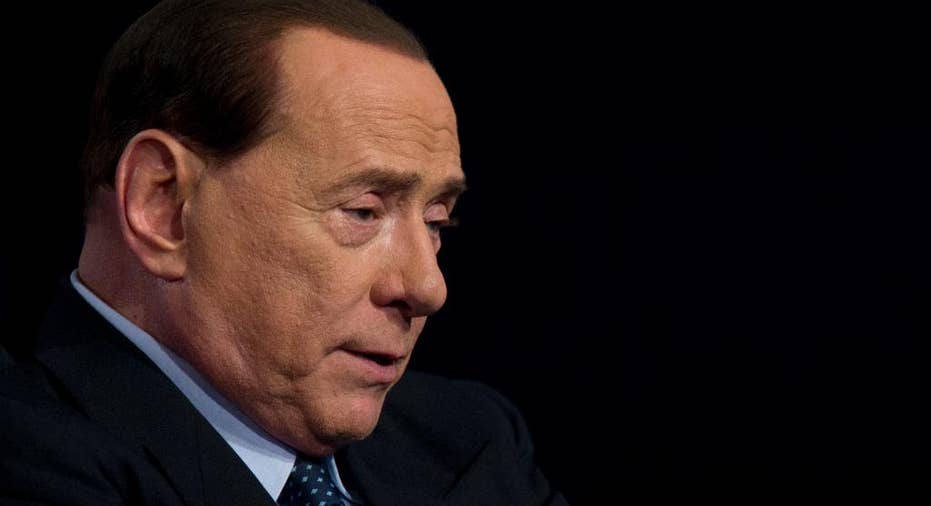Trump's trailblazers: Billionaires who turned to politics

WASHINGTON – If Donald Trump wins the White House on Tuesday, he'll become America's first billionaire businessman to serve as president. But he'll be following in the footsteps of other moguls who have jumped into the political fray elsewhere in the world.
The track record for these businessmen-turned-political leaders is decidedly mixed. Some have translated their private sector acumen into success in government. Others had tenures marked by scandal, and even a military coup.
Americans have elected presidents with business experience before — among them, George W. Bush, who ran an oil company, and Herbert Hoover, a mining executive. But all moved into politics before running for the nation's highest office. Trump would be the first American president to never have held elected office, or other high-level government or military post.
The real estate magnate has long promoted his business background as a selling point for voters frustrated with career politicians.
"We need people in Washington that know how to make a deal," Trump says.
A look at some of the billionaires who blazed a trail from business to politics:
___
SILVIO BERLUSCONI, ITALY
Trump has drawn more comparisons to the brash Berlusconi, a three-term Italian prime minister, than perhaps any other foreign leader.
Both are irreverent and controversial, and they like to flaunt their lavish lifestyles. Each started his careers in real estate, but made his name in the media world: Berlusconi built a fortune buying up television stations and Trump became a fixture in the New York tabloids and reality TV.
For Trump, that's probably about where he'd like the comparisons to end.
Berlusconi was a fixture in Italian politics for two decades, but his time in office was frequently marred by scandal. He was convicted of multiple crimes, including tax fraud and paying for sex with an underage prostitute, though the latter charge was overturned by an appeals court.
___
PETRO POROSHENKO, UKRAINE
Known as Ukraine's "Chocolate King," Poroshenko made his fortune in the confectionary industry. Now he's a key Western partner in trying to resolve the heated dispute between Ukraine and Russia.
Poroshenko was elected president in 2014 following the public uprising that led to the ouster of Ukraine's pro-Russian leader. The billionaire businessman positioned himself as a friend of Europe and the United States, and indeed speaks and meets regularly with both President Barack Obama and Vice President Joe Biden.
But Poroshenko's tenure has coincided with more Russian meddling in Ukraine, particularly along the country's shared border. The U.S. has sent Ukraine tens of millions of dollars in nonlethal aid; Obama has resisted calls to send lethal assistance.
It's unclear what type of support Poroshenko would have from the U.S. under a potential Trump administration. Trump has spoken favorably about Russian President Vladimir Putin an Trump has said he would be "looking at" whether to recognize Crimea — a Ukrainian area annexed by Moscow — as Russian territory.
Poroshenko's transition from businessman to political leader also holds warning signs for Trump's financial future. The Ukrainian leader saw his net worth decline significantly after taking office.
___
THAKSIN SHINAWATRA, THAILAND
A telecommunications billionaire, Thaksin was Thailand's prime minister until he was ousted in a military coup in 2006.
During his tenure, Thaksin drew support from poorer voters who backed his reduction in hospital feeds and other populist programs.
But Thaksin's wealth would contribute to his political downfall. He faced corruption allegations after his family sold a company for $1.9 billion in a way that enabled them to avoid paying taxes on the sale, sparking a year of political tumult in Thailand that ended in the coup.
Though he's been in exile for several years, Thaksin remains involved in Thai politics from affair. Earlier this year, he weighed in on American elections, saying there was "some similarity" between himself and Trump.
"The cultures are very similar, the culture of being a businessman," Thaksin told the Financial Times. "And then when successful businessmen come to politics, they give fresh air to political campaigns."
___
SEBASTIAN PINERA, CHILE
Pinera's financial empire touched numerous parts of Chilean society. He held stakes in the country's largest airline, a television station and the popular soccer team Colo-Colo.
Turning to politics, Pinera campaigned on his private sector experience and became the first conservative to lead Chile since military rule ended in 1990. But his presidency launched to an inauspicious start — a major earthquake disrupted his 2010 inauguration.
Chile experienced solid economic growth during Pinera's four-year term, but the president himself was deeply unpopular. Chile's constitution prohibits presidents from serving two consecutive terms. Pinera is eligible to run again in 2018.
Pinera hasn't been shy about weighing in on the U.S. election, levying sharp criticism on Trump. During an appearance in New York last fall, Pinera said the Republican would be a divisive leader and said his election would be a "tragedy."
___
Follow Julie Pace on Twitter at: http://twitter.com/jpaceDC



















